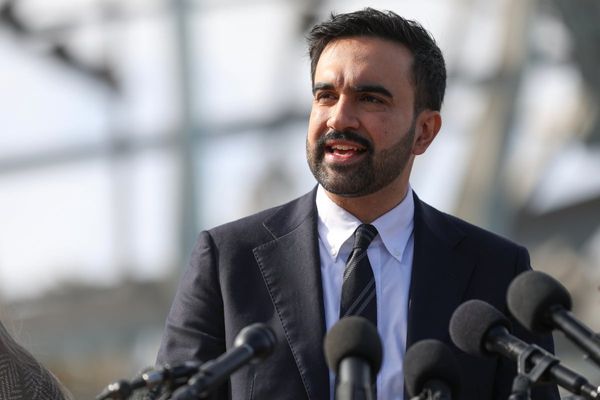
Imagine a situation in which most companies on the London Stock Exchange had failed to file their report and accounts on time, with several behind on their paperwork by multiple years. Then further imagine that one explanation for the delays was that the UK doesn’t have enough auditors with the right skills, and that the body that used to do most of the work was abolished in 2015. Then assume that a handful of these companies were simultaneously confessing to hundreds of millions of pounds of writedowns on property speculation. There would be uproar.
The above parallel, however, roughly describes the state of affairs in local government in England. Only 12% of audits for 2022 were completed on time and, even with a subsequent push to catch up, the tally stood at only 27% at the last count. Overall, 520 audits, from a population of about 400 local authorities, are delayed, Lee Rowley, the local government minister, told MPs last month. Stating the bleedin’ obvious, he called the position “clearly unacceptable”.
Meanwhile, fears about the financial horrors that may emerge grow with every fresh study. A report by the credit rating agency Moody’s last week took a cold look at local government finances after the string of section 114 notices (in effect, declarations of bankruptcy) from Birmingham, Croydon, Slough, Thurrock and Woking and concluded that more authorities will fail “as weak governance amplifies the impact of rate cycles”. It sounds a safe prediction.
Rishi Sunak, instead of trying to make political capital out of the woes of Labour-led Birmingham, should recognise, first, that some of the worst blow-ups happened under Tory regimes; and second, that central government is hardly blameless.
The backdrop to this crisis is well-known: local authorities’ central funding was squeezed in post-2010 to the degree that spending power fell by 17.5% in real terms in a decade. In response, many councils took the hint-cum-encouragement to go forth and speculate, which usually meant borrowing to invest in commercial property (Thurrock scorched itself in solar farms). But, critically, local authorities were assisted in the borrowing binge by oodles of easy loans from the Treasury-backed Public Works Loans Board.
Some of the activity now looks absurdly reckless: Woking council’s total borrowing was 127 times its core spending power in 2021, an almost laughable ratio. But a compounding factor is surely the absence of what Moody’s means by “governance”. Where was the scrutiny? Local authorities were advised to “have regard to” to a prudential framework from 2013 that emphasised sensible things like security and liquidity when borrowing, but “they were not legally obliged to do so”, says the report.
That situation existed until November 2020 when borrowing rules were tightening, probably because the Treasury was alarmed by the hit to commercial property values in the pandemic and the concentration of lending. Forty-nine local authorities, or 14% of the sector, have accounted for 80% of the £7.6bn spent on commercial investments by councils since 2016.
But it should have been common sense, at the very outset, to realise that stiffer financial safeguards and scrutiny would be needed. Commercial property development is not like inspecting planning applications. Councillors should have worked that out for themselves. Instead of trimming finance departments, as many did under budget pressures, they should have been adding to them to deal with the new complexities. Yet the scrapping in 2015 of the Audit Commission, the body that used to oversee local authorities’ audits, also looks in retrospect to have been a key moment in the emerging financial disaster.
The commission’s auditors were moved into the private sector, a move that Eric Pickles, the local government secretary at the time, claimed would “pass power down to people, replace bureaucratic accountability with democratic accountability and save the taxpayer £50m a year”. That statement now reads as a grade A example of a false economy. Bureaucratic accountability, it turns out, is no bad thing if it ensures that audits happen promptly and external scrutiny takes place.
The UK is not alone is suffering from a lack of auditors in the specialised and low-fee field of local government, but the private sector has notably failed to fill the gaps. A public accounts committee report in June said there were now fewer than 100 key audit partners in the UK registered to perform local audit. That dire situation, almost everybody agrees, has developed partly because responsibilities were fragmented across about half a dozen bodies.
The government’s belated attempt to clear the auditing backlog at least recognises the problem. The Financial Reporting Council (FRC) will be given the role of “shadow system leader”. Why shadow? Because the job is earmarked for the intended new overarching Audit, Reporting and Governance Authority, the constantly delayed successor to the FRC. The “system leader” model sounds a sensible to house oversight, standards and enforcement in one place, but it also had merit in 2020 when recommended in an independent review by Sir Tony Redmond. Even now, the FRC is still waiting for its official remit letter from ministers.
For the costs of slow auditing and insufficient oversight, go back to the Moody’s report. “Financial mismanagement and governance failings have been widespread in most of the local authorities that have issued section 114 notices,” it said.
“In Woking, Croydon and Thurrock, external auditors and government-appointed commissioners have noted failures in financial controls, very limited scrutiny of investment decisions and a lack of in-house commercial investment expertise.” At Slough, it said, auditors are completing a 2019 audit in 2023, which “demonstrates the weakness in its audit evidence”.
To repeat, this long-running story has multiple causes. Appalling decision-making by individual councils and naive councillors undoubtedly lies at the heart of the worst failures. And the pandemic cranked up existing pressures. But those local residents facing cuts to sports facilities and public toilets (Woking), or a 15% increase in council tax (Croydon), should reserve a portion of their fury for central government. It oversaw loose borrowing rules and tolerated for too long an under-resourced auditing setup. The combination usually spells trouble.







